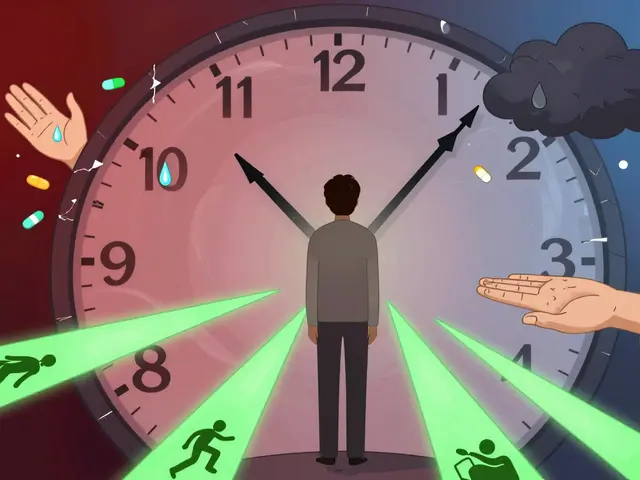Bethanechol: what it is and who it helps
Bethanechol is a prescription drug that acts like acetylcholine to stimulate the bladder and gut. Doctors prescribe it mainly for non‑obstructive urinary retention (when the bladder won’t empty properly) and sometimes for certain types of slow bowel movement. It won’t help when there’s a physical blockage — that needs a different approach.
When and how doctors use bethanechol
If you’ve been catheterized after surgery or you’re having trouble emptying your bladder without a mechanical cause, your clinician may consider bethanechol. It’s also used in specific cases of postoperative ileus or urinary retention caused by nerve problems.
Oral dosing varies by patient. A typical adult starting range is 10–50 mg, taken three or four times a day, usually 1 hour before or 2 hours after meals. Your prescriber will pick the exact dose and schedule. Always follow the label and never change the dose without checking first.
What to watch for: side effects and warnings
Because bethanechol stimulates muscarinic receptors, expect cholinergic side effects. Common ones are stomach cramps, nausea, sweating, drooling, increased salivation, urgency to urinate, and sometimes slow heart rate. Most are mild, but some people get stronger reactions.
Stop the medication and call your doctor right away if you notice severe stomach pain, fainting, chest pain, wheezing or trouble breathing. Those could be signs of a serious reaction.
Certain conditions make bethanechol unsafe. Don’t take it if you have: a mechanical obstruction of the bowel or bladder, active asthma or chronic obstructive lung disease with bronchospasm risk, uncontrolled low heart rate, or an active peptic ulcer. If you’re pregnant, breastfeeding, or have heart disease, talk with your provider about risks and alternatives.
Drug interactions matter. Medications that increase cholinergic activity (like some cholinesterase inhibitors) can add to bethanechol’s effects and raise the risk of side effects. Antimuscarinic drugs (for overactive bladder or some Parkinson’s meds) can reduce its effectiveness. Always tell your clinician about all prescription, over‑the‑counter drugs and supplements you take.
Practical tips: take bethanechol on an empty stomach when possible, carry water, and plan bathroom access after dosing. If you miss a dose, take it as soon as you remember unless it’s close to the next dose — don’t double up. Store the medication at room temperature away from moisture and direct sunlight.
Bethanechol can help when used correctly, but it’s not risk‑free. Keep open communication with your prescriber, report side effects promptly, and never use it for conditions it wasn’t prescribed for. If you want more detail on interactions, alternatives, or how it compares to other bladder drugs, check with your pharmacist or clinician — they can give advice based on your full medical history.
How to talk to your doctor about Bethanechol: a guide for patients
Talking to your doctor about Bethanechol can feel overwhelming, but it's important to address your concerns and questions. Start by explaining your symptoms and why you think Bethanechol might be a suitable treatment option for you. Be open about any existing medications or medical conditions to avoid potential interactions. Don't hesitate to ask your doctor about the possible side effects and what to expect while taking the medication. Remember, your doctor is there to help and support you, so don't be afraid to be honest and ask for clarification if needed.






